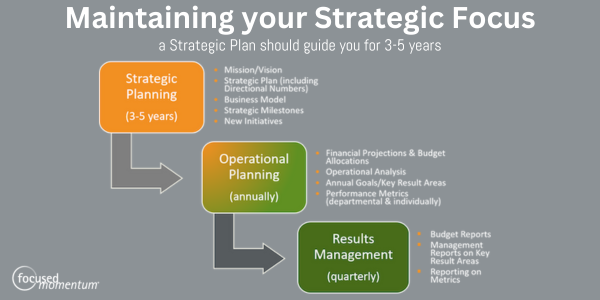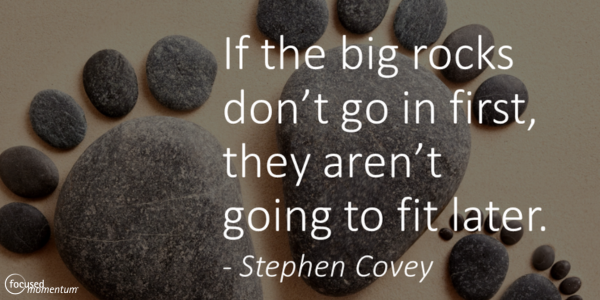Maintain Strategic Focus through Annual Planning
For those with a fiscal calendar starting in January, the autumn months will be dominated by one thing: budgeting. By mid-September, the budget...

Bringing an outside expert in to assist a strategic planning effort is typically a significant consulting investment for an organization. Considering multiple candidates, checking references, and conducting a panel-style interview are all key tactics for selecting the best fit for your organization.
Still, there are specific things to look for when seeking help developing a strategy.
When interviewing candidates, you want to understand their process and how they engage stakeholders.
This includes how they would gather diverse points of view so that your strategic thinking discussions move beyond the transactional mindset that dominates business management.
Engaging stakeholders during the planning process strengthens your strategic thinking and enrolls individuals who are critical for its implementation. Ask potential consultants about their experience designing and managing multiple stakeholders in strategy development.
Also, ask about prior consulting engagements. You want to know if their experience aligns with the size of your entity and the nature of the strategic challenges you face. If you are a large non-profit seeking a consultant, a smaller non-profit experience may not prepare you to deal with your challenges. If you are a founder-driven enterprise, selecting a consultant with primarily corporate experience may be too rigid for you.
Industry experience is not as important in strategy development as one might think. It can work against you.
You want to build your unique growth story to create a competitive advantage when developing a strategy. It is great to augment your team’s view of the market, its trends, and your position in the market by engaging an industry expert during your planning process, but you do not want them leading your process.
Seek out a consultant who has experience developing strategy in firms of your size and with similar challenges. Industry expertise is less of a factor in selecting the best candidate.
Another important but typically less explored area is to inquire how they came to the strategy consulting.
Over the last 25 years, we have competed against many different folks. On one end of the continuum, there are the facilitator consultants and, on the other, business analysis experts. A bona fide strategic planning consultant is a combination of both.
The strong facilitator types rely on group sessions to explore essential issues and document agreements. They stick to a structure they are most comfortable working within. If your group requires a different approach to explore and resolve a unique challenge, their framework may not be able to accommodate it. Also, a facilitator consultant is an expert in facilitating group sessions; they are not trained or experienced in strategic thinking. They can design a process that will assist you in exploring the critical questions, but they do not help you integrate and build your plan. Their assumption is that you know how to do that. If you believe all you need is someone to facilitate a meeting in your planning process, they would be a good fit for you.
The business analysis expert will typically engage your organization in an assessment or research project and produce insights for your planning. They usually conduct a meeting to review the findings and their recommendations. Again, how you choose to use these insights is left to you and your team. If you need a deep dive into a particular topic, this method may be a good fit as the first step in your planning effort, but it will not produce a strategic plan.
A full strategic planning consultant may rely on analytics to a degree, but data can never paint the full story of future success.
After you have hired your consulting partner, your work is not done. Creating a productive working relationship is critical for getting the most out of your investment.
How do you work with a strategic planning consultant to ensure the success of the engagement?
Is it time to consider hiring a strategic planning expert?
Schedule a discovery call to see if we might be a great fit.

For those with a fiscal calendar starting in January, the autumn months will be dominated by one thing: budgeting. By mid-September, the budget...

Shel Silverstein’s book, The Missing Piece has been a favorite of mine since I was a little girl. I still have a copy and love sharing it with...

Last week I wrote a post on creating a strategic thinking discipline to accommodate the ever-changing environments we all live and work in today: Is...